Suunto ZoneSense
-
I’m starting to get convinced that ZoneSense is very useful. Have a look at the ZS vs HR / Power graphs for this workout ( https://whatsonzwift.com/workouts/aktivitus-10wk-ironteam-endurance/szr-aktivitus-2h-v1 ) . This complied very well with my (subjective) feeling.
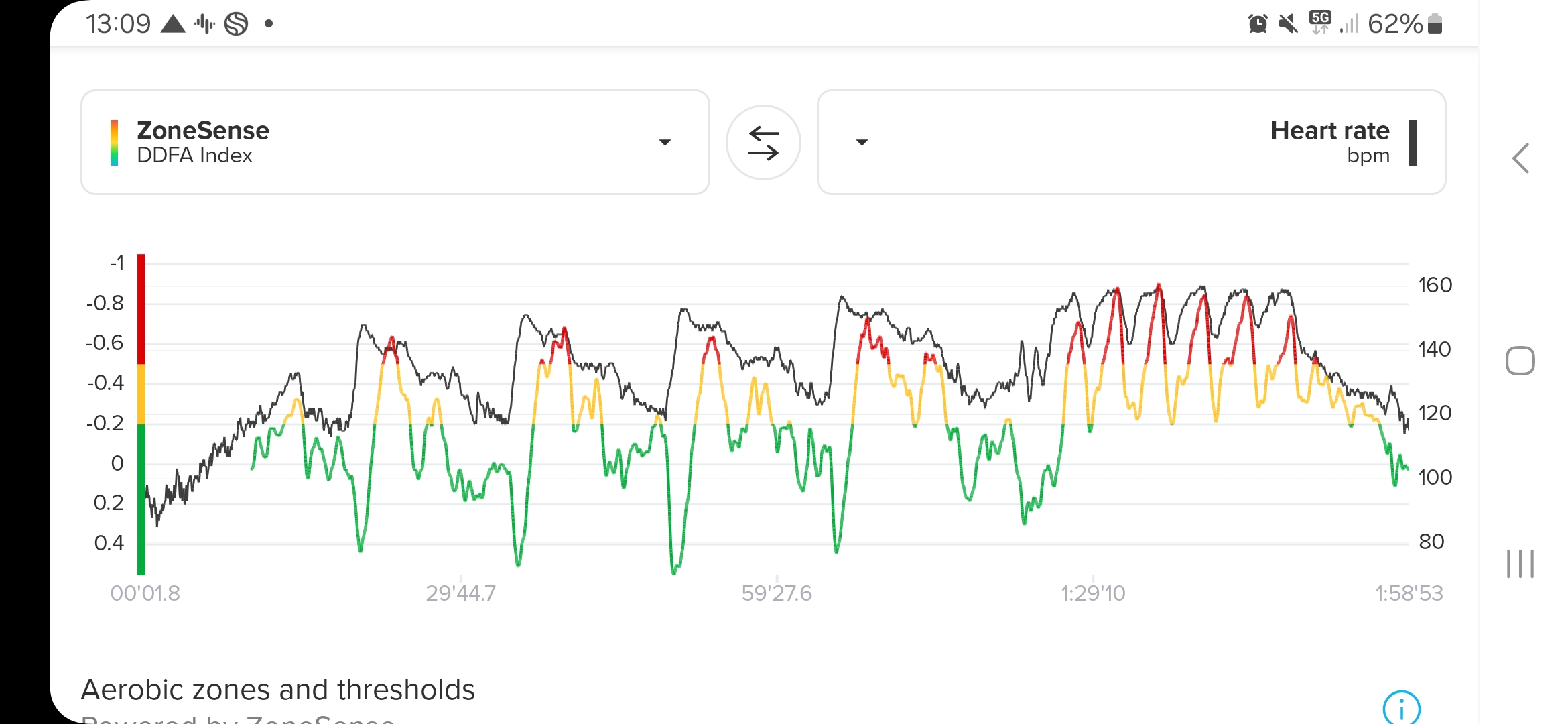
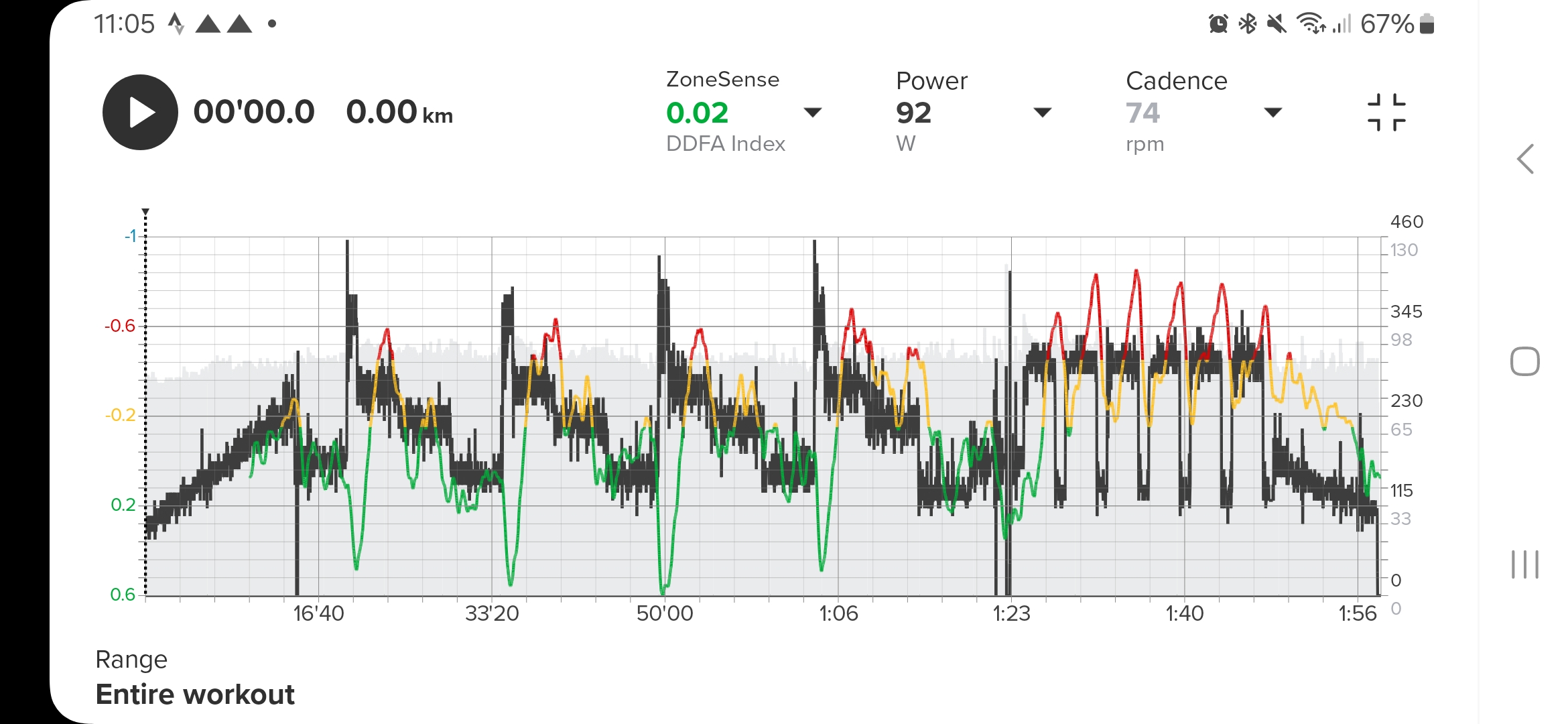
-
@Inge-Nallsson I understand that in the first 10 minutes, the algorithm needs some data to create a baseline, but in my case it happens so often to have issues with the conductivity of the chest HR strap so I was wondering if the “setup” period is relevant in any way or how does that affect the indications later on.
For example, this morning, the first 10 minutes were affected by erroneous readings of the HR, until the sweat creates the conductivity to allow decent readings. Pace was constant, flat terrain.
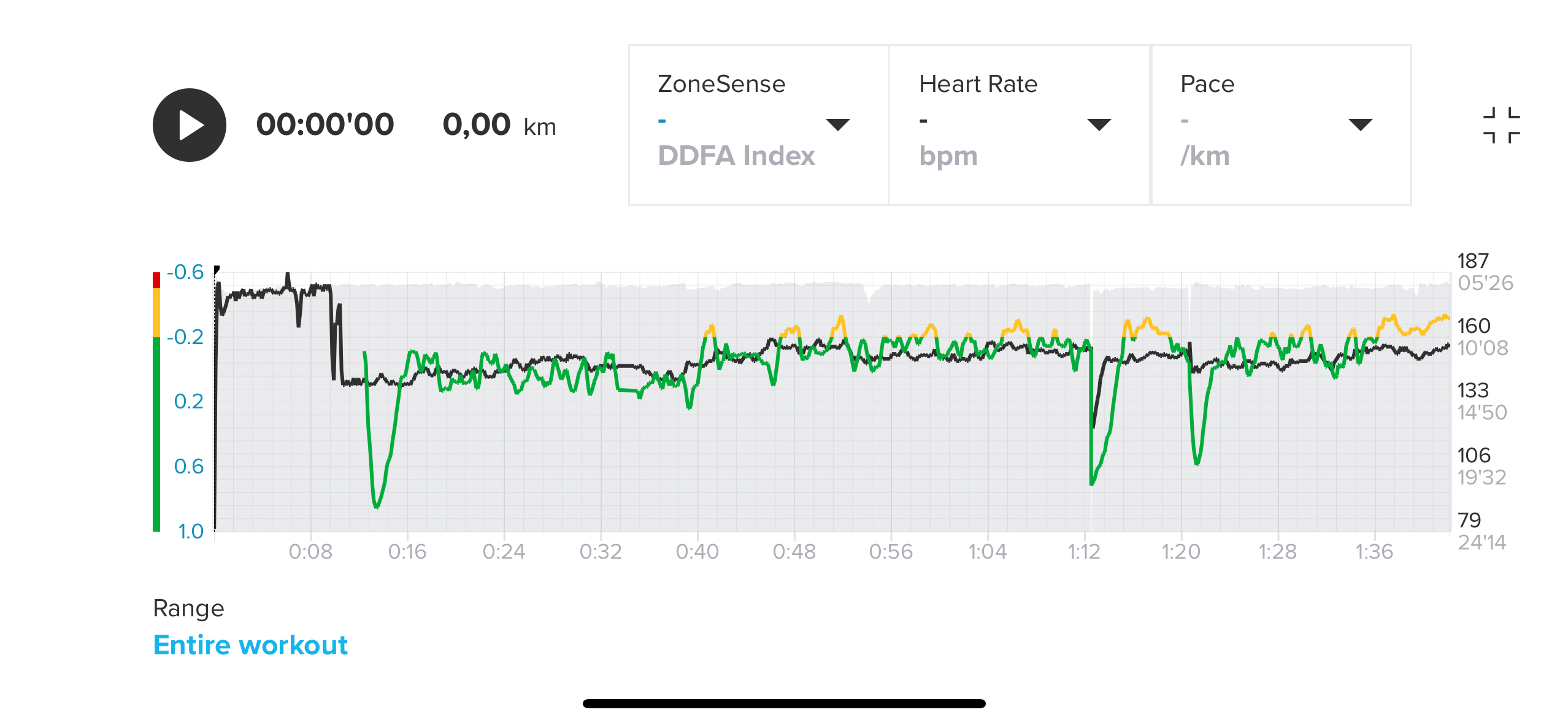
I would say that the indications from ZS are reflecting the way I feel, but I can’t keep from asking myself if the “baseline” period is not actually affecting the later results or by how much.

That’s what I see in Runalyze, there is a certain jump in the R-R values when the stability of the readings is improved.Otherwise, the readings are ok … the interpretation seems inline with what I feel…but am I not fooling myself?
-
@Liviu-Nastasa
I guess it’s normal (or maybe not unusual) to have some scattered values at the beginning, and that’s the main reason for calibration.As you can see, despite the mess
 , there are some good sets of readings that are (very probably) used to calibrate ZS baseline
, there are some good sets of readings that are (very probably) used to calibrate ZS baseline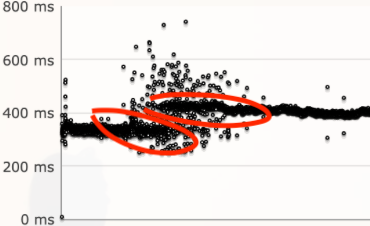
-
@Theo-Lakerveld looks great!
-
@Inge-Nallsson @sartoric Thank you! Then I will first work on the quality, the belt is already washed. Then I will try it again with Zonesense and hope for the best

-
@Theo-Lakerveld from your screenshot it’s also nicely visible that Zonesense tracks the changes caused by rising your HR with some delay, due to the time that is needed for them to effect your system and why it won’t work for fast paced intervals accordingly.
-
@Liviu-Nastasa As @sartoric says, it is not unusual to see larger swings in the heart rate variability at the beginning of an exercise, and even getting scattered readings there, and from the plain text and videos Suunto have published (I’ve not read the scientific papers) they disregard the whole first 10 minutes, waiting for the body to reach a balance (homeostasis) within its systems.
As for a baseline, and please correct me if I’m wrong (Suunto people), there already is a general one established through the first couple of ZS registered activities. How much of that is kept or adjusted by consecutive recordings I’ve not seen any mention of. But the day-by-day difference to the longterm baseline should not start to be looked at until after the discarded first 10 minutes.
I will try to inform myself better by reading those published science papers, but there will always be a ‘black box’ of implementation from, in this case, Suunto.
-
@Theo-Lakerveld
Hi Theo
I followed @Brad_Olwin advise this weekend on a 2hr trail run with a lot of climbs. I noticed a similar trend to yiur data in that the DDFA score increased to a max at the start of a climb (a drop on the graph) before dropping and going negative after the summit.Anyone know why this happens? You can see a clear lag between DDFA and HR which I can understand but why does your DDFA improve when HR increases initially? Just curious !
-
@Oxhill_Runner DDFA is not measuring HR. There is a lot of information about this from Suunto.
https://youtu.be/bD3O4BZ9vIc?si=JXKmquFxU2TXahXx -
@Brad_Olwin
Hi BradI get that it’s measuring HRV, something I’ve been tracking with HRV4Traing for a few years now too.
I was curious why the DDFA score improves initially as intensity (and so HR) increases before decreasing and ZS moves out of aerobic towards anaerobic zones.
Seems a bit counter intuitive that’s all ! Maybe a question for a cardiologist

-
@Oxhill_Runner you are only seeing one example and when HR increases ZS will not always increase, more complicated. That is why I gave you the video link. ZS does not measure HRV as the app you use. What you are asking is not necessarily occurring. However, there is a lag between ZS and HR.
-
@Brad_Olwin @Oxhill_Runner, I’ve seen that behavior consistently with ZS about having a big drop to positive value (green) at the start of a interval.
From what I’ve been reading, it’s all about a reaction reflected on our HRV when we introduce a big change in intensity, our HRV changes and kind of prepares for what is coming.
This can also be seen when you’re about to start a downhill and change intensity.
Point being, those big drops to green are related to times where are intensity shifts by a lot.
This is from a 3x15 mins @ threshold:
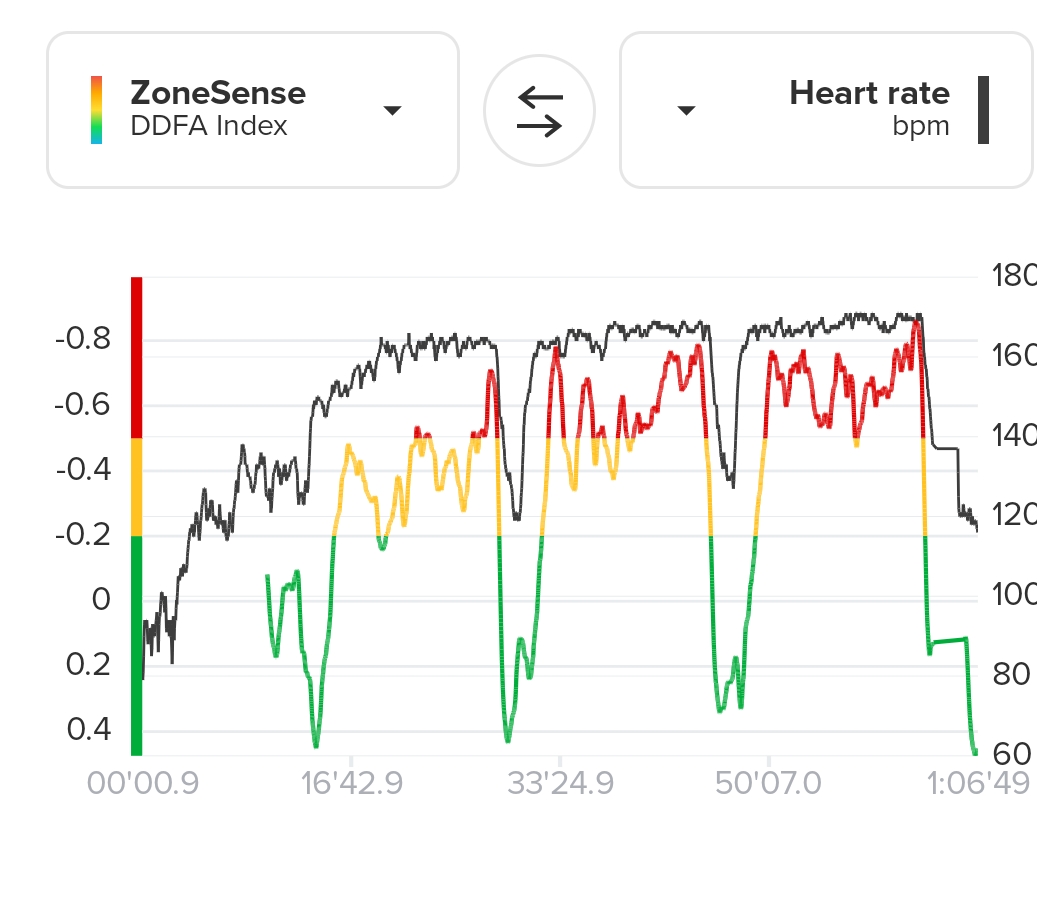
-
@herlas Yet at every drop you have a substantive decrease in HR. I think if steady HR and progressively increasing these will not occur.
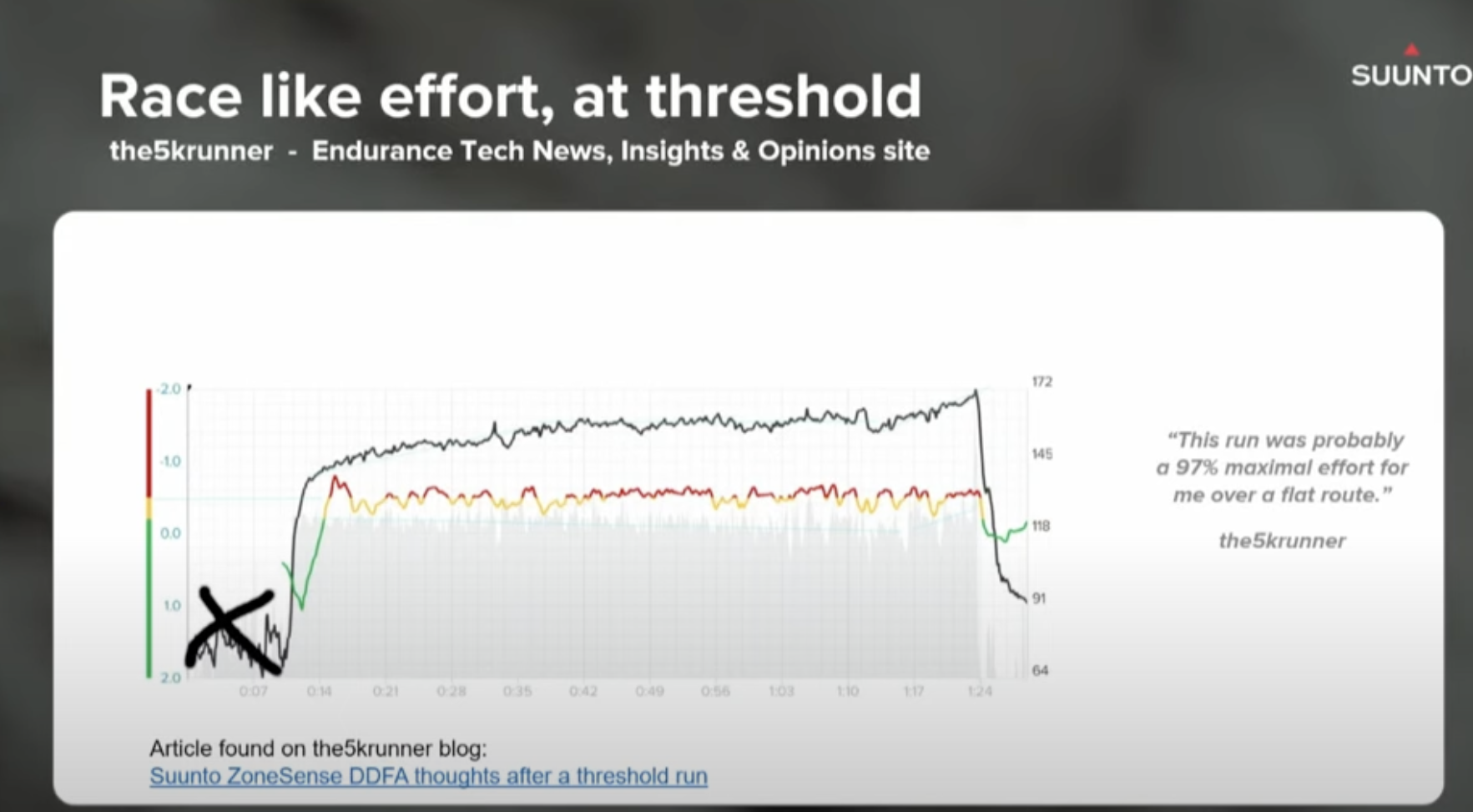
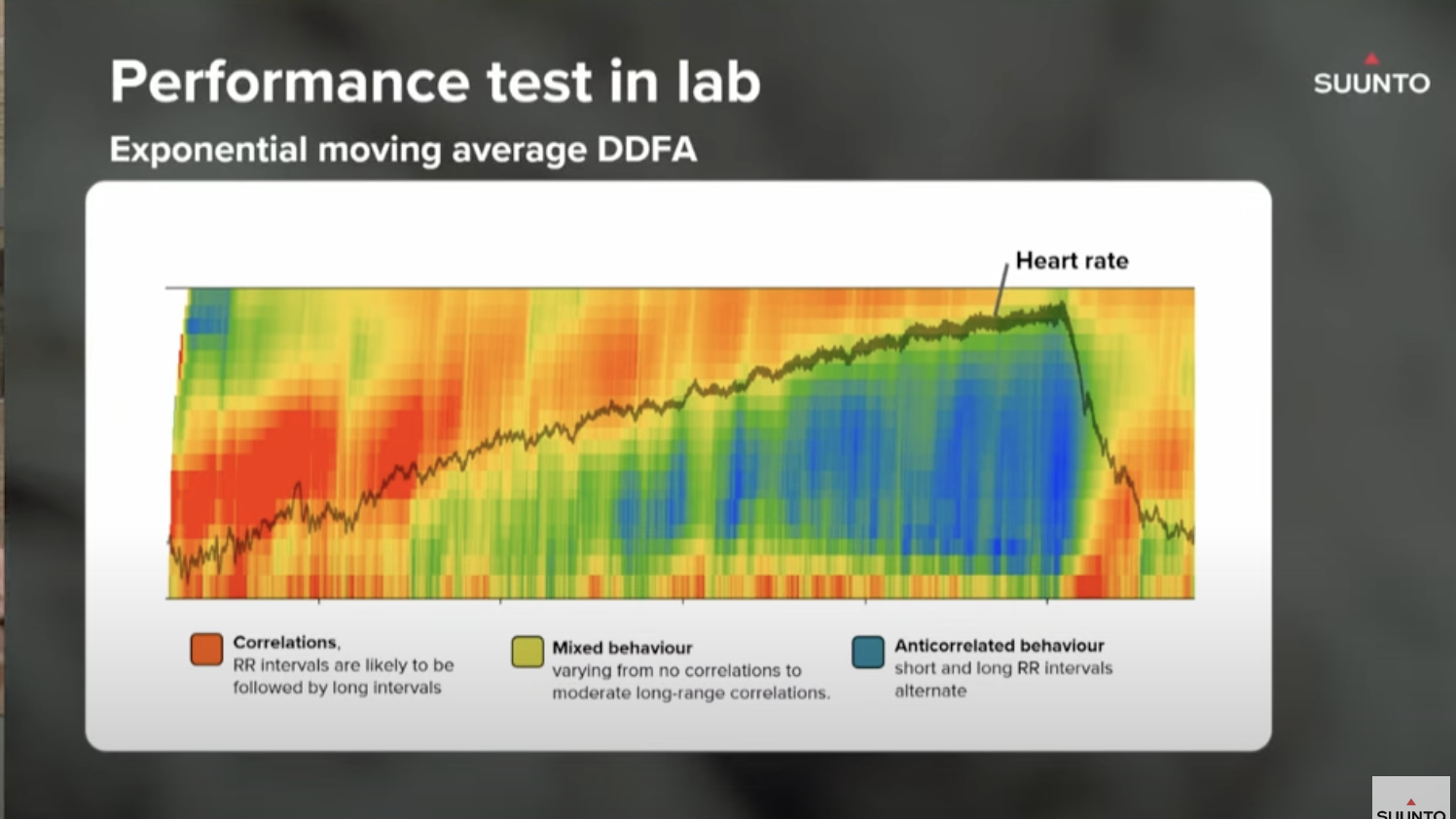
-
To me, it looks like the ZoneSense reading follows lactate build up. I’m going to test this with the lactate measurement protocol from the trainers in the Norwegian triathlon federation (the people behind Blumenfelt and Iden). I have a lactate level blood test device. If the test result follow each other, this could be a really revolutionary functionality. I’ll keep you posted.
-
@Theo-Lakerveld have you looked at the webinar videos put up by Suunto on their YouTube channel? What you’re mentioning on ZS and lactate thresholds was already stated as a finding, ZS does follows that and Monicardi who came up with DDFA Index used in ZS, said ZS is +/- 5 bpms to heart rate in a lactate threshold test.
Nothing really to demostrate here anymore, but give it a try for yourself

-
@herlas nope, I haven’t seen these. I’ve only read the superficial marketing stuff. I usually don’t trust that stuff before I’ve seen proof or have experience with it myself. So therefore I’m getting happily surprised with the ZoneSense functionality.
-
I’m curious to see a comparison of lactate levels, HR and DDFA index on the trails. I’m getting green ZS on uphills taking more than 3-4 minutes when I feel I’m working harder but not pushing hard and my HR is reaching my LT. Based on the HR I should be in yellow/red in ZS, but maybe flat running HR “zones” don’t apply to running on terrain with elevation change.
-
@Theo-Lakerveld There are peer-reviewed scientific manuscripts published on this with much more sophisticated lab testing than you have but you are welcome to test.
Kanniainen et al. - 2023 - Estimation of physiological exercise thresholds based on dynamical correlation properties of heart r.pdf -
@halajos I am getting expected behavior on hills. I only have hills for running:)
-
@Brad_Olwin good to know, thanks. I’ll continue experimenting once my MCL injury allows. Do you need to maintain a very stable HR (which often doesn’t happen due to small changes in terrain)?